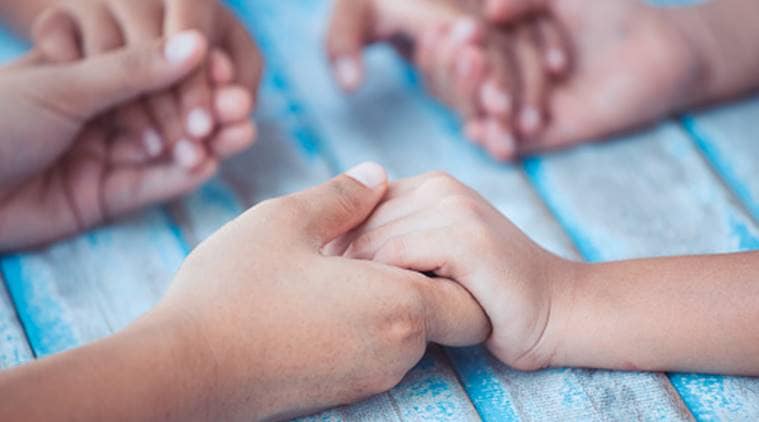
With some parents worried over special needs children scoring better than their own in exams, because they were using scribes, it's time to question the true definition of success and inclusivity.

By Tanu Shree Singh
Last fortnight has been eventful. The boys started with their board exams that, no matter how much I downplayed, got them a bit anxious what with all aunts and uncles gasping and getting a horror-struck expression on their faces when they told them about it. We all have been trying to deep breathe.
To add to the drama, I got a call from a parent one fine evening complaining about some kids in one of the boys’ class using unfair means. To be precise, he had a problem with the children using scribes. Turned out a lot of parents had a problem with it for various reasons. The school education boards have allowances for children with special needs to use scribes. The process of approval is strict and fairly transparent. Nevertheless, the whole thing boiled down to a lot of them asserting that if ‘these’ kids scored more than theirs and were felicitated on stage, it would leave their kids demoralised.
They emphasised that children were disturbed since suddenly these kids had started scoring respectably well. The school was blamed, there were lots of murmurs about the ‘unfairness’ of the system and finally the parents registered their protest to the school. All this while, the children knew. They knew that other parents were against them using scribes. They knew they were alone in their fight.
The whole episode left me shocked, confused and angry. Long conversations with friends, other psychologists, and mad moms followed and we came up with a set of questions that we as parents need to ask ourselves:

What is success?
Does success have to be measured in relation to others? Is it okay to lay the foundation of our success on the failure of others? At home, we have always gauged it against ourselves. The children put in their best, compare their performance with past and hopefully plan for future. The system is working. I know it is contrary to the expectation of the rat race.
Going after success that is defined by others’ performances does not work. When was the last time you felt inspired and motivated because you were compared with a co-worker? We are getting the kids to work towards success out of fear of slipping grades. Ideally, we and the children should not feel threatened by others. We need to be the deaf toad that climbed the mountain mostly because he could not hear other toads’ demotivating comments. Look up that story. Introspect.
What do we feel about failure? As a culture we have made failure out to be this beast that kills you the moment you stumble. There is no going back. ‘Beta if you fail, your life will be over.’ Or ‘See that choley-bhaturey kiosk? You won’t even be able to set that up if you flunk.’ Each half a mark is made out to be the difference between life and death. And the result? A news headline screaming of a 15-year-old jumping to his death since he failed in two papers.
Look around, read about successful people from various fields and times; many common threads bind them and one of them is their fearlessness, their willingness to take the fall and rise. So rather than scaring them of failure, perhaps we need to prepare them for it.
What is the cost of success?
Are we as parents becoming so taken in with the idea of success for our child that we are willing to go to any length? We are willing to overlook the moral education of the children, the strengthening of their value systems, and the widening of their horizons. We want them to be horses with blinkers on. We do not give them time to reflect, ponder, contemplate and analyse. We are in a hurry to watch them succeed. In the process, we forget to talk about rights and wrongs, we overlook the importance of raising children that are more than a crammed textbook. So what is the cost of your child’s success going to be? Will empathy take a beating? Or are you going to sacrifice the eye for finer details of life? Perhaps, mindfulness and gratitude would be thrown out? Work out the cost. Reflect, if it will all be worth it.

What is happiness?
As parents, we tell ourselves that we are doing everything for the child’s happiness. Newsflash: Research now shows that monetary success has no direct correlation with happiness. Once you have achieved some amount of comforts and security, money doesn’t add up to happiness. So preparing the child for the rat race without focussing on the true meaning of happiness puts them at the risk of turning into adults who are disillusioned and unhappy with their life choices. When they should have been experimenting and trying new things, they had already been told what they were going to be. If happiness is your goal, perhaps it is time to understand what it truly means.
How much is too much?
As a generation we are going overboard with protecting our offspring. We do not let them go to the park alone, we do not let them run around in the rain or do anything that could be listed as remotely dangerous by Google. We make sure we get all updates about the alphabet the child practiced in class, over WhatsApp groups. We get the best projects done from shops. All in the name of making childhood a smooth ride.
Overprotective, helicopter parenting is making children more anxious and less resilient. A growing body of research is now talking about letting the children take some risks, get hurt a little to be able to learn how to handle hardships and work out creative solutions. So before going all out, think about it. Are we spoon-feeding them too much? Are we not limiting their worlds by denying them opportunities in the name of protecting them?
How inclusive are you really?
We like to imagine ourselves as being progressive, inclusive people. And we like to believe that our children are accepting too. Ask yourself some questions and try to give honest replies: Does the household have separate utensils for the helpers? Do you fidget when your child mixes with a child with special needs and obvious behavioural issues? Do you often use sentences like, ‘I have no problem with the religion/caste but…’ If your answer is yes to any of these, inclusiveness is not your cup of tea yet. Our children learn ideas at home so when they see us being hypocritical, that is what they pick. A wonderful thing that parents could have done in the situation above is to read up about special needs and discuss with their children.
Do we have conversations with children?
When was the last time you had a debate about whatever is happening around us with children? Or is the conversation limited to:
Homework done?
Preparation?
Did you finish lunch?
Who’s that girl (or boy) you were talking to?
Are you still friends with X?
Is that the way to behave?
It usually ends up in interrogation or instruction. Conversations are lost. At home, from discussing movies to politics, we try to take on everything. It helps connect with the children. Sometimes, the discussions are hurried as we step in and out of the car on way to some tuition class. Sometimes, it happens in the morning, cuddled up before the day takes over. We talk. We listen. We also fight.
Last fortnight was filled with outrage and self-doubt. Outrage over the sheer insensitivity of the other parents and their inability to realise that the world is big enough for everyone. What we let our children believe today will shape everyone’s future. But here they were, almost feral in their bid to overprotect their children at the expense of others.
The outrage also gave way to a niggling self-doubt. What if I am wrong about this whole child-rearing business? And what if I am raising a couple of Ferdinands who would sit around admiring flowers, while their peers raced ahead in swanky cars? What if I am looking at things through the wrong end of the telescope? As I said to a friend shortly afterwards, ‘We’d probably find if my ways were wrong or right in about a decade. Then I’d probably be issuing public apologies to the boys.’
I shared my doubts with the boys. They laughed. The older one heard the entire story and said, ‘Mum, these kids were not a threat so far. Now suddenly the parents are seeing them as legit competition and hence are losing all sympathy.’ The outrage stayed. The self-doubt somewhat lessened.
That night, as I tucked the boy in, I asked, ‘Would you feel bad if they scored more than you?’
‘Huh? Why? It’s not like they are going to take my marks! Ma, they have been doing badly all their lives in some of the subjects. Now because of the scribes, they finally might get what is due to them. I’d be cheering for them. Where do you get these ideas anyway?’ And he went back to cuddling his indignant cat.
Whatever the marks or their position in the rat race, the boys for me are already passing with flying colours. Who knows what the future holds, but their present seems promising.
(The writer has a PhD in Positive Psychology and is a lecturer in psychology. She is also the author of the book Keep Calm and Mommy On. Listen to Season 1 and 2 of Tanu Shree Singh’s podcast Difficult Conversations With Your Kids.)
Source: Read Full Article